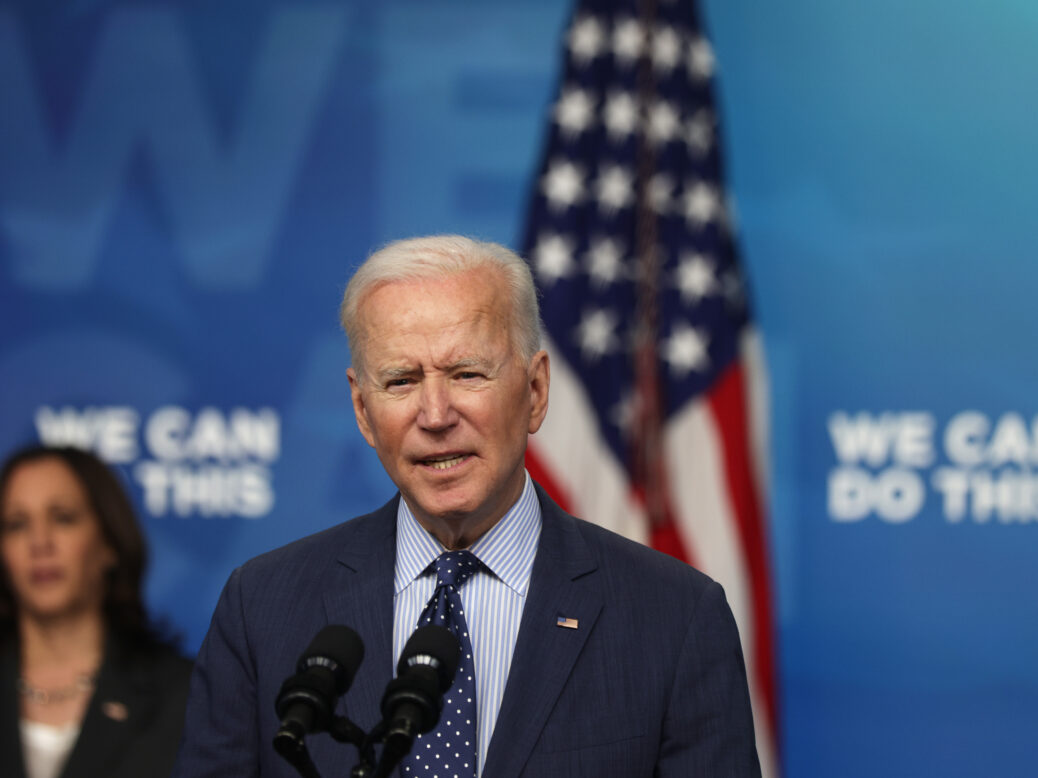
Writing in this column in October last year, I predicted that even if Joe Biden won the upcoming US presidential election, his foreign policy would contain significant notes of continuity: “Shifts written off as products of [Donald Trump’s] impulsive and antagonistic character and zero-sum world-view will in fact prove structural and long-term.” Europeans who expected a restoration of a cosy past order in transatlantic relations would, I argued, be in for a rude awakening. How does that claim look today?
Biden’s rise to the presidency has clearly improved the relationship. In March, the US and EU coordinated sanctions against Russian officials over the poisoning of Alexei Navalny and against Chinese officials over the persecution of the Uighurs. In April the US president hosted a climate summit confirming that the US and Europeans were once more aligned on the environmental crisis. On 5 June G7 finance ministers agreed a landmark commitment to a global minimum corporate tax rate of 15 per cent.
More such positive developments will doubtless follow when Biden travels to Europe for his first foreign trip as president. He will meet with European leaders at the G7 summit in Cornwall, which runs from 11 to 13 June, and at the Nato and EU-US summits in Brussels on 14 and 15 June.
But major strains endure. EU leaders defied objections from Biden’s transition team in December and signed an investment agreement with China (since blocked by the European Parliament). US tariffs on EU steel and aluminium imposed in 2018, and EU retaliatory tariffs on American products, remain in place. The two sides have sniped at each other over Covid-19 vaccines: Europeans criticising the US for failing to export doses, Biden blindsiding the EU by backing a patent waiver. Germany riles the US establishment by continuing work on the Nord Stream 2 gas pipeline from Russia and increasing its defence spending only slowly. Even on areas where the two now have common goals, such as the climate or artificial intelligence regulation, they differ on how those should be achieved.
Some of this can be understood in the context of the Trump years. Biden’s intransigence on tariff roll-back can be ascribed to his domestically focused “foreign policy for the middle class” responding to the root causes of Trumpism. For their part, European leaders fear the election of a new Trump-like (or worse) president in 2024, so feel they should hedge their strategic bets.
[See also: The “special relationship”: Why a successful Global Britain matters to the US]
But it is also a product of deeper realities. US and European interests may still overlap, but far less completely than they did in the Cold War. Europe will never be a major player in the Indo-Pacific; the US is, and wants to expand its presence. European instincts on market forces and some forms of new technology are, for historical reasons, more cautious; American ones are more cavalier. Europe’s relationship with China is most influenced by the economic integration of the heartland of the Eurasian landmass; America’s is most influenced by the power contest on Eurasia’s eastern edge. Europe is directly exposed to events and instability in Africa and the Middle East; the US is not.
The Trump era gave both sides the excuse to park these realities. By contrast the Biden era, warm in spirit but increasingly shorn of illusions about transatlantic divergence, seems to be producing more frank and open debate on both sides of the Atlantic about the future of the relationship.
In the aftermath of Biden’s election win in November, Emmanuel Macron clashed with Annegret Kramp-Karrenbauer, Germany’s defence minister, when she dismissed Macron’s pet idea of European “strategic autonomy” – a new stage in a conversation that urgently needs to take place among Europeans. The UK’s deliberations about the meaning of “Global Britain” deserve to be seen as part of this wider European debate. In US foreign policy circles within and beyond the new administration, discussions are now intensifying about how much to tolerate and even encourage European strategic autonomy. In a new paper for the Center for American Progress (CAP), Max Bergmann, James Lamond and Siena Cicarelli argue that past US resistance to Europe’s attempts to do more on its own amount to a “grand strategic error”.
[See also: Exclusive: Members of US Congress speak out against Britain’s foreign aid cuts]
That CAP paper pinpoints an important truth: both sides bridle at the relationship’s old norms. Washington grumbles that the Europeans do too little, but objects when they try to do things on their own (under the Bill Clinton-era “three Ds” doctrine, opposing anything that delinks from Nato, duplicates existing efforts or discriminates against non-EU members). Europeans resent American hectoring but often lack the self-confidence to pursue the sort of autonomy that would make them less dependent.
Peer closely at the frustrations, and the makings of a grand bargain can be glimpsed. It would serve both sides for the relationship to become both more openly transactional and more equal. The EU would rely less on US security and would bring more to the negotiating table, the better to trade compromises on topics where interests differ and to cooperate on common goals where they coincide. The US would encourage the EU to do more on its own and bolster those like Macron calling for it to do so (for example, the CAP authors suggest, Washington could encourage the union’s eastern members to see new EU defence integration as a complement rather than a challenge to Nato).
If both sides are willing to update their world-views and mindsets, a more grown-up and frank transatlantic relationship is available that would benefit both. Not a sentimental return to the past, but a realistic stride into the future.
For full G7 coverage, visit newstatesman.com/g7
This article appears in the 09 Jun 2021 issue of the New Statesman, The Covid cover-up?





